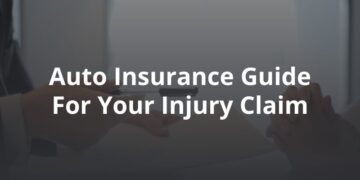Personal injury protection (PIP) insurance is an important component of auto insurance many people are unaware of. In fact, you might have PIP coverage and not even know it, since you automatically have it unless you reject it in writing. The minimum amount of PIP coverage that you insurance company must offer is $2,500, but many insurance companies offer coverage higher than that. So, if you did not reject PIP coverage in writing, you have at least $2,500 in coverage. The upper limits of PIP coverage depend on your auto insurance provider. The upper limits range from $10,000 to as high as $300,000 or higher depending on the insurance provider. If you are involved in a motor vehicle accident, there are some important features of PIP insurance to know.
PIP insurance is “no-fault” coverage, meaning benefits are paid without regard to who is at fault for the car accident. If an accident occurs, PIP insurance covers you, passengers in your car, and your family members, even if you caused the crash. Under Texas law, PIP covers 80 % of lost wages, medical expenses related to the accident, funeral expenses, and someone to take care of the injured party if needed. For example, if you are transported to the hospital by ambulance after an accident, you can use PIP funds to pay for the EMS and hospital bills. If you need any other treatment related to the accident, money from your PIP policy can help pay the bills before they negatively affect your credit. If injuries from the accident cause you to miss work, PIP funds can replace 80% of your lost wages. For many people with limited access to paid time off or with physically demanding jobs, PIP coverage provides vital financial support for day-to-day living expenses.
After a car accident, PIP funds can be accessed quickly. Once you receive a medical bill you can submit the bill for payment by PIP. Your insurance company should pay the provider directly or send the check to you within 20 days. If you miss a week of work because of your accident, you can submit your pay stubs for reimbursement and your insurance company should send you a check for 80% of your wages, also within 20 days. If you lack access to emergency funds, PIP insurance gives you quick access to money to stay out of financial trouble.
If you did not cause the wreck, funds from PIP do not reduce the amount owed by the liable party’s auto insurance. For example, if your EMS bill is paid using PIP funds, the at-fault party’s insurance company should still reimburse the cost of the EMS bill. This applies to any of the other expenses covered under PIP coverage as well. The liable party’s insurance is still responsible to reimburse you for medical costs despite any PIP benefits you receive. You can get money paid for a single medical bill twice: once by your PIP insurance and then again by the liable party’s insurance company. Since you only have to pay the medical bill once, you end up with extra money in your pocket.
Many people do not realize the many useful features of PIP insurance. If you are involved in a car accident, having PIP coverage is a great asset in dealing with the daunting costs that result. It’s worth looking at your insurance policy or contacting your auto insurance carrier to make sure you have PIP coverage. If you don’t, and you can afford the coverage, it’s a great way to protect yourself in the event you are injured in a car accident.
References
- https://en.wikipedia.org/wiki/Personal_injury_protection
- http://www.tdi.texas.gov/pubs/consumer/cb020.html#coverages
- http://www.statutes.legis.state.tx.us/Docs/IN/htm/IN.1952.htm#D





